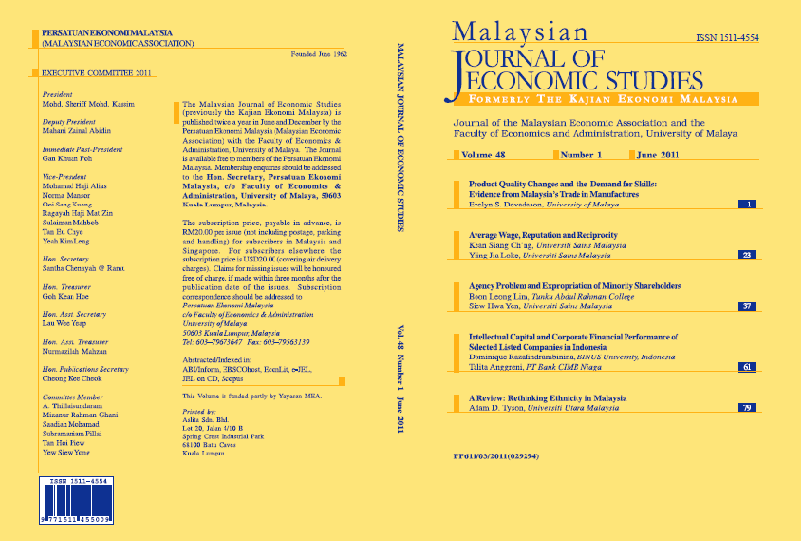Agency Problem and Expropriation of Minority Shareholders
Keywords:
Agency theory, corporate governance, executive compensationAbstract
Controlling shareholders who are normally also the executive directors tend to set their own levels of remuneration as a means of expropriating minority shareholders. This study tests the relationship between ownership concentration and executive remuneration, using panel data for a sample of 191 Malaysian public listed companies over the 2002-2007 period. This study finds a non linear relationship between share ownership of executive directors and their levels of salary by using the fixed-effects (FE) model. The model exhibits a negative, positive and negative relationship which corresponds to the occurrence of convergence-of-interests, managerial entrenchment, and convergence-of–interests effects. The positive relationship between 23 to 76 per cent between executive ownership and salary for levels of executive ownership indicates the existence of expropriation. Despite the occurrence of expropriation, salary and remuneration received by executive directors are positively related to market-to-book ratio. A positive association is also found between bonus paid to executive directors and firm’s accounting profits. Independent non executive directors and the remuneration committee are able to exert a downward effect on directors’ remuneration and bonus. But external blockholders do not possess such an influence in reining in the salary, bonus, or remuneration of executive directors.







